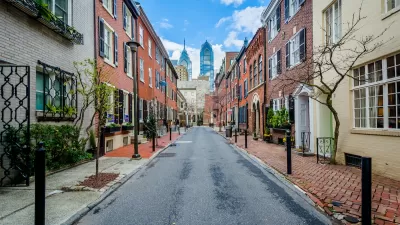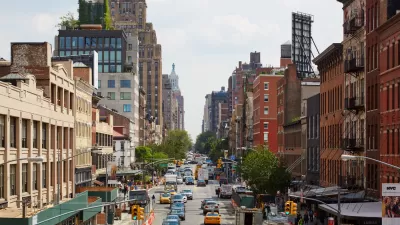How should cities incentivize developers in a down market? And should they? William Fulton reflects on the price cities will pay to get new buildings, and if it is worth it.
"It is the natural inclination of state and local governments to try to make something happen in a recession. Faced with stagnant tax revenues and a dwindling jobs base, elected officials - and their appointed economic developers - feel tremendous pressure to do something to turn things around.
But how do you respond in the face of a worldwide economic crisis? If even the most powerful central bankers around the globe can't quite figure out how to deal with it, what can a state or a city or a county do?
The answer boils down, as always, to the carrots and sticks economic developers and their elected bosses have at their disposal. In the end, this means money - how much of it does the government extract from businesses to cover its own costs, and how much money does the government provide to businesses in the way of subsidies or incentives?"
FULL STORY: Going for an Upturn

Maui's Vacation Rental Debate Turns Ugly
Verbal attacks, misinformation campaigns and fistfights plague a high-stakes debate to convert thousands of vacation rentals into long-term housing.

Planetizen Federal Action Tracker
A weekly monitor of how Trump’s orders and actions are impacting planners and planning in America.

San Francisco Suspends Traffic Calming Amidst Record Deaths
Citing “a challenging fiscal landscape,” the city will cease the program on the heels of 42 traffic deaths, including 24 pedestrians.

Defunct Pittsburgh Power Plant to Become Residential Tower
A decommissioned steam heat plant will be redeveloped into almost 100 affordable housing units.

Trump Prompts Restructuring of Transportation Research Board in “Unprecedented Overreach”
The TRB has eliminated more than half of its committees including those focused on climate, equity, and cities.

Amtrak Rolls Out New Orleans to Alabama “Mardi Gras” Train
The new service will operate morning and evening departures between Mobile and New Orleans.
Urban Design for Planners 1: Software Tools
This six-course series explores essential urban design concepts using open source software and equips planners with the tools they need to participate fully in the urban design process.
Planning for Universal Design
Learn the tools for implementing Universal Design in planning regulations.
Heyer Gruel & Associates PA
JM Goldson LLC
Custer County Colorado
City of Camden Redevelopment Agency
City of Astoria
Transportation Research & Education Center (TREC) at Portland State University
Jefferson Parish Government
Camden Redevelopment Agency
City of Claremont





























